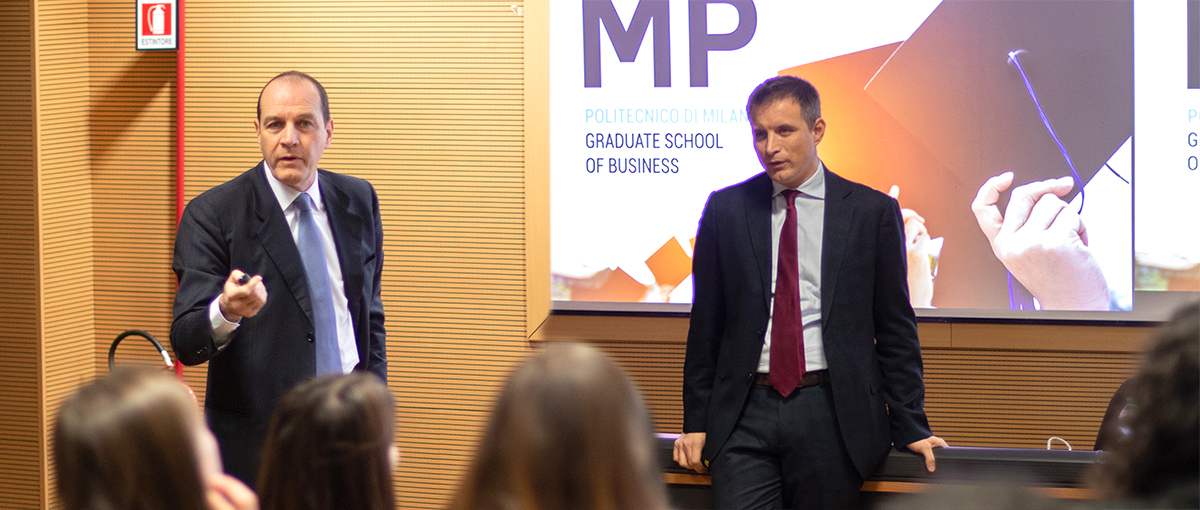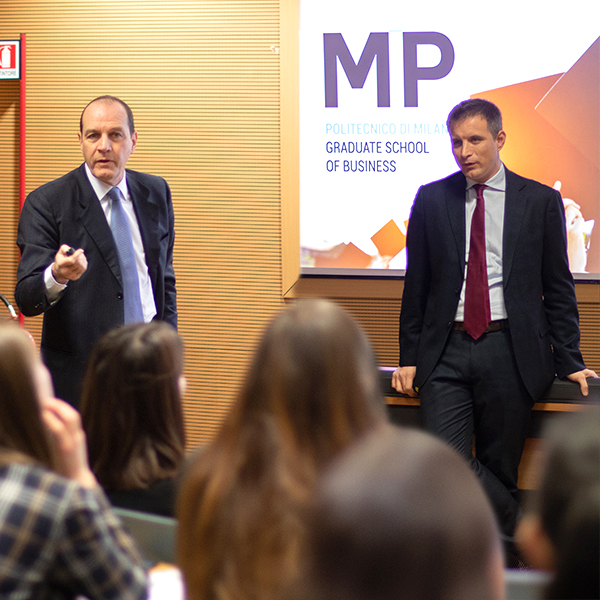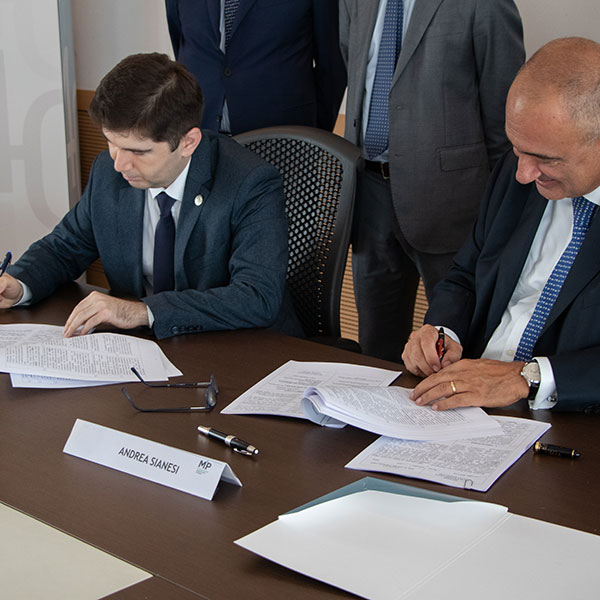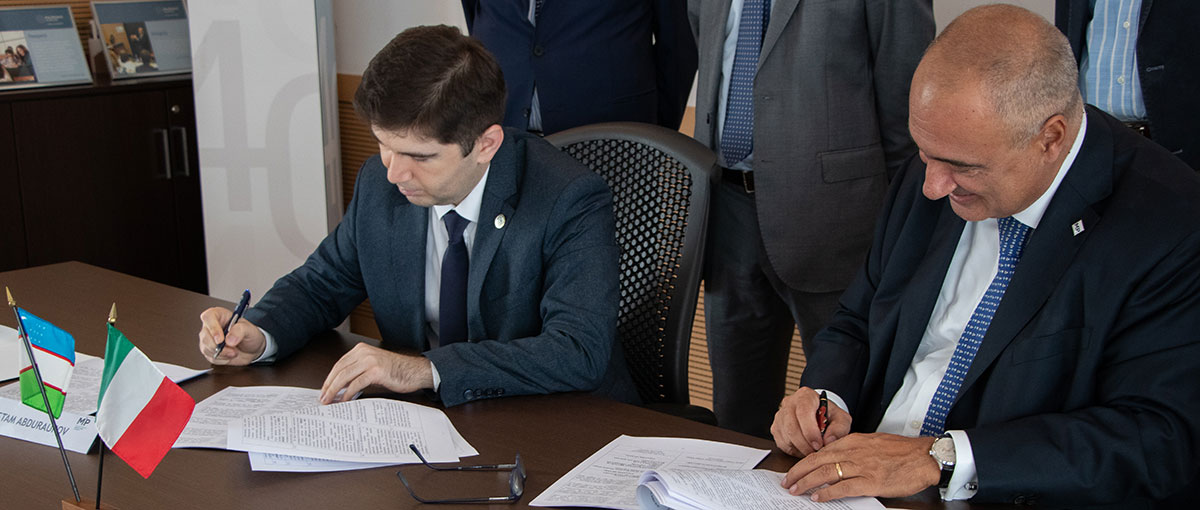
Vittorio Chiesa and Federico Frattini, recently appointed respectively President and Dean, talk about changes, strategy and goals of Politecnico di Milano’s Graduate School of Business
After celebrating its 40th anniversary in 2019, MIP began 2020 under the sign of change. Starting from the top. Vittorio Chiesa and Federico Frattini are now respectively holding the positions of President and Dean.
While the people holding positions of responsibility have changed, the goals of the Business School remain the same: offering its students all the tools to compete in an increasingly complex job market. But, to do that, it’s necessary to develop new offerings and new strategies. «The business school scenario has changed», Vittorio Chiesa tells us. «The context in which we act has evolved, it has become more competitive and challenged the traditional educational model, revealing all its limits». It’s a reality that, as Federico Frattini reaffirms, «requires a rethinking of the way the educational offering is provided, increasingly oriented towards lifelong learning».
Digitalization that looks to the world
New contents, different formats, lifelong learning: these are the keywords that sum up the MIP guidelines, and which in turn also indicate the challenges faced. «The first involves innovation in the ways education takes place», explains Frattini. «We want to stimulate a reflection on the physical spaces in which we educate our students. The campus of the future is distributed, consisting of smaller, more agile and flexible spaces. It’s an evolution made possible by digital technologies. With this in mind we must ask ourselves about the nature of formats: are they correct? Can they become more integrated with the professional and private lives of our students? We have already experimented with projects in this field, for example with Flexa, but we must do even more with a view to continuous learning».
Digitalization, on the other hand, is one of the two strategic axes that led to the growth of MIP in recent years. «The other», says Vittorio Chiesa, «is internationalization. Our classes welcome students from the entire world. But we must not stop here: we must broaden our geographical scope. And if on one hand we can count on a city, Milan, which can now boast the same appeal of the biggest and most modern European capitals, on the other it also up to us to expand our international reach. The second challenge is this».
Together with companies education is continuous
The third and last challenge, instead, relates to the theme of continuing education: «The concept of alumnus itself must be rethought», says Federico Frattini. «Until not long ago, an educational programme like a Master’s ended and students began to work. Today this passage is no longer so clear: there’s a continuous need for education and training, for this reason teaching must be rethought with this in mind. And it’s for this reason that we can’t ignore the development of critical skills and the ability to know how to learn in our students».
The corporate nature of MIP itself offers a privileged point of view on world of work and on the needs of companies, as President Chiesa explains: «MIP is a non-profit joint stock company. Sitting on the MIP board of directors of MIP are numerous leading Italian and international companies. We have noticed that their presence has translated into a multiplication of the value of our offering, always in step with the requests that come from the world of work».
A competitive business school
So the challenges are clear. As is the future strategy. «Business education finds itself in a highly competitive context», concludes Federico Frattini. «A business school is in all respects a company subject to strong competitive pressures, determined by the entry of new competitors on the market and accelerated by digitalization. Our priority is to implement a management style for the school focused on increasingly greater professionalization. That can be done by involving people with specific capabilities and skills. Competitiveness, professionalism and speed of action are three keywords for the future of MIP».








